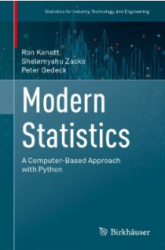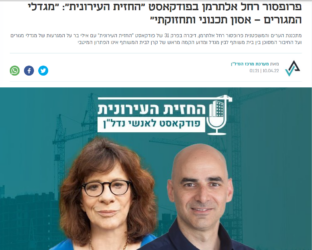Connect to schedule an interview
+972.4.829.2329
Neaman in the media
Study: the majority of the Arab communities are not prepared for a national emergency
According to the findings of a new study presented at the conference and held at the Western Galilee College and the Samuel Neaman Institute by Dr. Ali Nohad, at the next national event, more Arab citizens will be killed because 86% of the Arab communities in Israel are not protected at all, both from a security situation as in the days of Operation Keeper of the Walls and on the part of an environmental event such as an earthquake.
Links to several articles on the subject:
מחקר: רוב מוחץ של היישובים הערביים – לא מוכנים למצב חירום לאומי – JDN
מחקר קובע: במצב חירום לאומי – יותר ערבים ייהרגו – עכשיו 14 (now14.co.il)
Battle of the buildings the electric charging station version
Idan Liebes
In the absence of legislation, neighbors’ clashes over the installation of charging stations in condominiums are increasing.
Idan Liebes, claims that out of all the installation options of charging stations, using the building’s public grid connection is the preferred method.
He explains that on average electric vehicles need to be able to charge at least twice a week at home, otherwise it will not be possible to expand the market, and failing to provide adequate solutions could lead to dangerous “pirated” charging solutions instead.
Israel Is Potential Gas Supplier for Europe as It Boosts Production
Idan Liebes
Idan Liebes says that the gas reserves in Israel are far beyond the current and expected consumption of gas in the country over the upcoming decades.
“There is a window of opportunity, and we don’t know how for how long this window will be open”
Modern Statistics: A Computer-Based Approach with Python
R. Kenett, S. Zacks and P. Gedeck, Springer 2022
This innovative textbook presents material for a course on modern statistics that incorporates Python as a pedagogical and practical resource. Drawing on many years of teaching and conducting research in various applied and industrial settings, the authors have carefully tailored the text to provide an ideal balance of theory and practical applications. Numerous examples and case studies are incorporated throughout, and comprehensive Python applications are illustrated in detail. A custom Python package is available for download, allowing students to reproduce these examples and explore others.
The first chapters of the text focus on analyzing variability, probability models, and distribution functions. Next, the authors introduce statistical inference and bootstrapping, and variability in several dimensions and regression models. The text then goes on to cover sampling for estimation of finite population quantities and time series analysis and prediction, concluding with two chapters on modern data analytic methods. Each chapter includes exercises, data sets, and applications to supplement learning.
Modern Statistics: A Computer-Based Approach with Python is intended for a one- or two-semester advanced undergraduate or graduate course. Because of the foundational nature of the text, it can be combined with any program requiring data analysis in its curriculum, such as courses on data science, industrial statistics, physical and social sciences, and engineering. Researchers, practitioners, and data scientists will also find it to be a useful resource with the numerous applications and case studies that are included.
School for living in heights
Prof.Rachelle Alterman: “Every tower by its very construction has a failure”
Israel cannot afford to become an asphalt state simply because of a handful of connected means
Prof. Rachelle Alterman on building rights and overcompensation.
6 a.m. with Dalik Volenitch-Interview with Prof. Ofira Ayalon
Prof. Ofira Ayalon in an interview on food scraps, waste, and the environment
The residential towers – a planning and maintenance disaster
Prof. Rachelle Alterman on the “Urban Front” podcast: “The residential towers – a planning and maintenance disaster”
Garbage in style: Electra will establish a pneumatic garbage disposal system in a neighborhood in ‘Sde Dov’
Ofira Ayalon, Idan Liebes
A techno-economic analysis of the issue of the use of pneumatic systems, conducted in 2015 by the Samuel Neaman Institute, concluded that the reduced need for workers, vehicles, and fuel to collect waste saves operating costs in the collection system.
The Ministry of Finance plan: 120,000 apartments on planned office space in Gush Dan
Prof. Rachelle Alterman stresses the importance of promoting housing solutions within existing neighborhoods. Currently, the widespread phenomenon of accessory dwelling units which produces excellent housing is illegal and should be deregulated.










